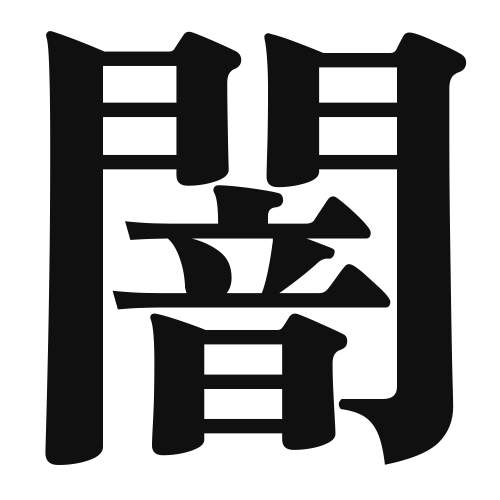1. Overview of Meaning
The kanji “闇” (yami) means “darkness” or “shadow.” It represents the absence of light and is often associated with mystery, fear, and the unknown.
2. Formation and Radical
The kanji “闇” is a compound character (会意文字) that combines the radical for “gate” (門) and the character for “dark” (暗). This combination suggests a place that is dark or hidden behind a gate.
The radical of “闇” is 門 (mon), which means “gate.” This radical often relates to concepts of enclosure or barriers.
3. Examples of Usage
Common words and phrases that include “闇” are:
- 闇夜 (やみよ, yami yo) – dark night
- 闇市 (やみいち, yami ichi) – black market
Example sentences in daily conversation:
- 「闇が深い森に入るのは怖い。」(It’s scary to enter a forest with deep darkness.)
- 「彼の心には闇がある。」(There is darkness in his heart.)
4. Synonyms and Antonyms
Similar kanji with related meanings include:
- 暗 (あん, an) – also means “dark,” but can refer more to a lack of brightness rather than the concept of darkness itself.
Antonyms include:
- 光 (ひかり, hikari) – meaning “light,” representing brightness and clarity.
5. Cultural and Historical Background
In Japanese culture, “闇” is often associated with the unknown and the supernatural. It appears in various folklore and stories, symbolizing fear and the unseen.
Proverbs and idioms that include “闇” are:
- 「闇夜に光を求める」(To seek light in the darkness) – meaning to look for hope or guidance in difficult times.
